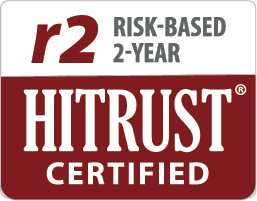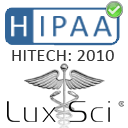Healthcare Marketing & HIPAA: Are you in Compliance?
Wednesday, September 14th, 2022Healthcare Marketing Today
Marketing is essential to growing any business successfully, but when you work in regulated spaces such as healthcare, there are compliance considerations. Whether responding to an online patient review or trying to increase patient engagement through marketing campaigns, misunderstandings in marketing best practices can lead to patient privacy breaches.
The Health Insurance Portability and Accountability Act (HIPAA), which controls what and when patient information may be shared for marketing purposes, was enacted before the electronic age. As a result, it can be challenging to find information regarding appropriate marketing practices using modern social and software technologies.
HIPAA and Healthcare Marketing
A large part of HIPAA regulates what is appropriate for the use or disclosure of patient information. There are certain instances where the use and disclosure of protected health information (PHI) is allowed without patient consent. These instances include sharing PHI for treatment, payment, or healthcare operations.
However, before you can use patient information for marketing efforts, you need to receive explicit written consent from the patient. The consent form must be specific to the marketing efforts you will use the patient’s PHI in. For instance, if you would like to share patient testimonials, photos, or videos on your website or social media accounts, the patient must sign a consent form stating that you will use their information in this way.
HIPAA-compliant marketing also largely depends on an employee’s understanding of the law. Employees responsible for handling PHI must be trained to use and disclose PHI within the scope of their job role. Improperly trained employees can expose your practice to HIPAA violations and costly fines.
8 Common Misunderstandings of Marketing and HIPAA
1. As long as patient consent is obtained, HIPAA doesn’t matter
Some organizations think they can use any marketing tool with a signed patient consent form. Still, the tool has to be HIPAA-compliant. Even if patients agree, it does not remove the organization’s obligations to secure PHI under the law. If protected health information is improperly accessed, it is still a breach and can lead to severe financial and reputational consequences.
2. Marketing emails do not need encryption
Many marketing emails imply a relationship between patients and providers and, as such, can often be classified as protected health information. PHI must be encrypted in transit and at rest to comply with HIPAA.
3. Personalizing marketing emails is a HIPAA violation
Marketing emails can be personalized as long as the proper safeguards and precautions are in place to protect patient privacy and meet compliance requirements.
4. Marketing companies do not need to sign Business Associates Agreements
As of 2013, the HIPAA Omnibus rule expanded HIPAA obligations to include business associates and subcontractors. Marketing agencies and vendors that process PHI on behalf of a covered entity must comply with HIPAA regulations, which include signing a BAA.
5. The only way to protect PHI is to use patient portals
TLS encryption meets HIPAA transport encryption requirements and provides a better user experience. Marketing emails sent with TLS encryption are more likely to be opened than those sent to a patient portal.
6. Using BCC is enough to keep patient identities private
BCC is NOT enough to protect patient identities. Although the end recipient cannot tell who else received the message, the entire list is visible as the messages are transmitted from server to server. The messages can be eavesdropped on by someone with technical abilities.
7. Always respond to social media reviews
Be extremely careful when responding to online reviews. Publicly confirming information about a patient’s health or treatment status is a HIPAA violation.
8. Healthcare marketing isn’t necessary or worth the hassle
Healthcare consumerism is rising, and patients are willing to change providers if they are unsatisfied with their experience. Educating and informing current and potential patients about your services is essential to improve new customer acquisition and retention.
How to be HIPAA-Compliant
The most crucial step is vetting marketing vendors and HIPAA compliance tools. Any vendor that handles PHI on behalf of a healthcare entity needs to sign a Business Associate Agreement that outlines how patient data will be stored, transmitted, and disposed of. Don’t choose a vendor who is unfamiliar with HIPAA’s stringent requirements. Also, watch out for quasi-compliance. Some self-identified “HIPAA-compliant” vendors can protect data at rest but not in transmission or require patient waivers to achieve compliance.
Next, always use encryption and default to security. Identifying PHI is often tricky, and the legal burden should not fall on the marketing team. By selecting technology that encrypts every marketing email, you can rest assured that messages are secure and compliant. A bonus tip- do not send marketing messages to an encrypted patient portal. Instead, send marketing messages with TLS encryption directly to patients’ inboxes. You will see much higher response rates and engagement.
Finally, to create the most effective marketing campaigns, use PHI to create segmented audiences and send them personalized content. These tactics are widely used outside the healthcare industry because they deliver results. *Remember that any tool you put PHI into must be HIPAA-compliant.
How LuxSci and Compliancy Group Can Help
LuxSci’s Secure Marketing tool is an email marketing platform designed to meet HIPAA requirements. It allows marketing teams to segment audiences and personalizes emails to engage patients and improve marketing ROI. If you are already using a third-party email marketing platform, no worries, we got you covered. LuxSci’s Secure High Volume Email solution can integrate with any third-party platform to make sure those emails are also HIPAA-compliant.
Compliancy Group enables healthcare organizations and vendors serving the healthcare industry to achieve HIPAA compliance through an automated software platform and live guided coaching. The Guard, its proprietary compliance platform, covers all the necessary parts of the HIPAA regulation. Compliancy Group awards clients the HIPAA Seal of Compliance upon successful completion of their process. The Seal can be displayed on a practice’s website, email signature, and signage, and proves they are dedicated to protecting patient information and have completed the steps required to satisfy the law.











